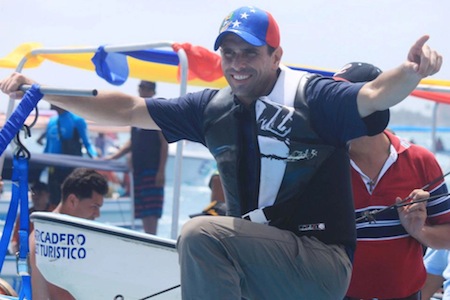In my earlier companion piece today, I discussed the policy case for electing Henrique Capriles as the next president of Venezuela in an attempt (however vain) to separate the emotional divide in Venezuela from the policy rationales that underline each candidacy.![]()
Separating the policy from the personal is even more difficult in the case of Nicolás Maduro, however, whose campaign at every turn has been one massive embrace of Chávez, not only as a predecessor, but as nearly a deity in his own right. So far, the Maduro campaign begins and ends with ‘Chávez,’ and there’s no guarantee that once elected, Maduro would wield a sufficient personal mandate even to take sufficient control of Chávez’s Partido Socialista Unido de Venezuela (PSUV, or United Socialist Party of Venezuela).
There’s frustratingly little substance as to what Maduro (pictured above) would do with a six-year presidency, let alone whether he could come to dominate a governing regime with a handful of key powerbrokers, such as energy minister Rafael Ramírez, finance minister Jorge Giordani, and national assembly president Diosdado Cabello, none of whom will easily step aside from their relative and significant fiefdoms in government.
But, as I asked with respect to Capriles earlier today, what policy arguments should motivate a moderate voter who enthusiastically supported Chávez in 1998 but who’s become increasingly disenchanted about the reality of Venezuelan governance and who may be flirting with supporting Capriles — is there a rational case for supporting Maduro over Capriles? Continue reading The policy case for Maduro in Venezuela


